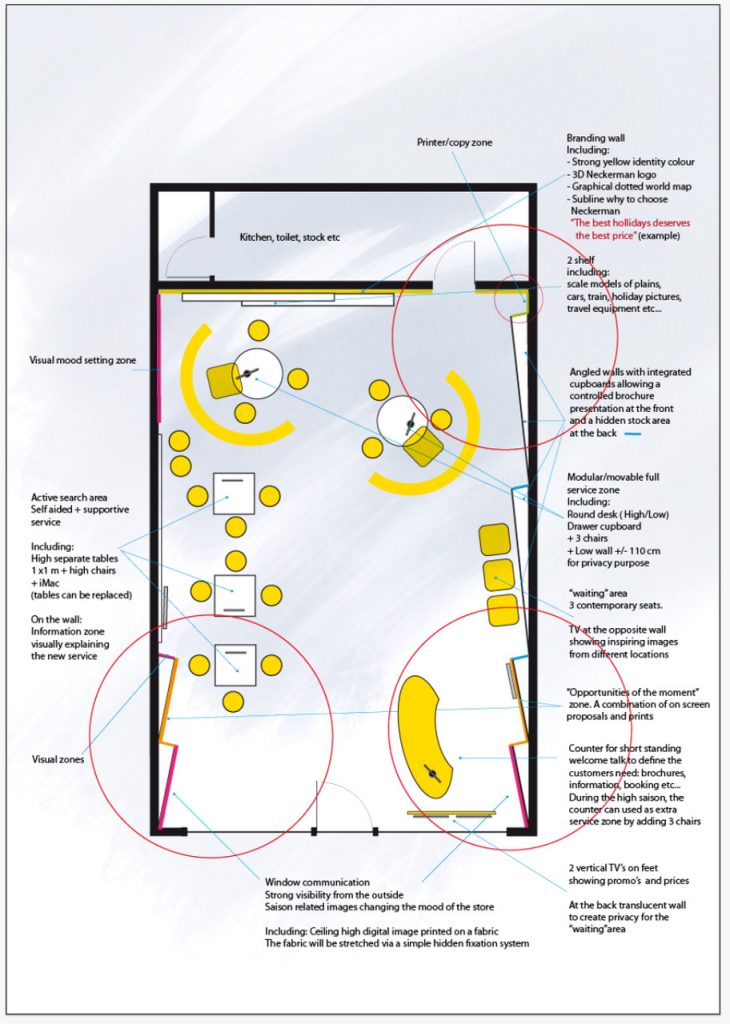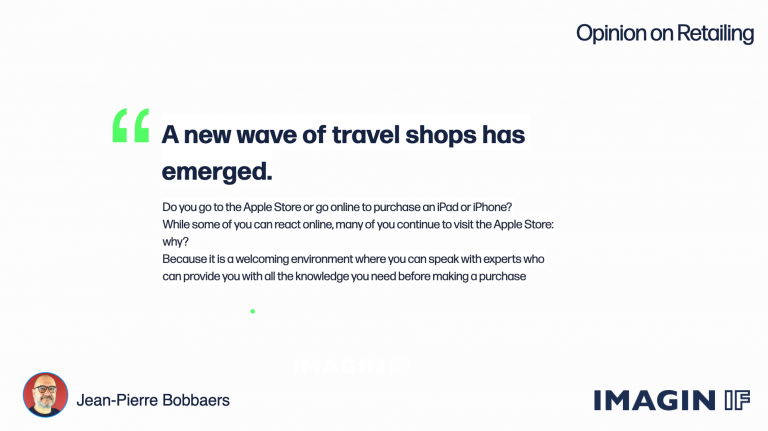Do you go to the Apple Store or go online to purchase an iPad or iPhone?
While some of you can react online, many of you continue to visit the Apple Store: why?
Because it is a welcoming environment where you can speak with experts who can provide you with all the knowledge you need before making a purchase, some stores also host seminars on particular subjects to help you find what you need and learn how to use their goods effectively. It’s just about having a good time.
Surprisingly, we’ve found that many leisure online travel retailers have jumped on board with this trend. In France, for example, a solely online player purchased a tour operator with retail locations. MakeMyTrip, India’s largest online travel agency, is opening physical stores to expand its scope to customers in areas where there is no internet but high smartphone penetration.
This new experience is being welcomed by travelers. After Havas Voyage renovated its retail stores in France, it discovered that seven out of ten people who walked in bought a trip with one of its agents, compared to just five out of ten before the refurbishment. In addition, the latest look of the travel agency attracted 25% more tourists.
The effect on the travel economy
Most people under the age of 30 have never visited a physical travel agency, and convincing digital natives to visit in person rather than online needs some creative thinking. Our study suggests that online players could be able to improve their brand by creating an offline presence based on travel.
Travel agencies, we conclude, must rethink their in-store experience and develop a long-term plan for seamless convergence between the physical and digital worlds. We’re here at IMAGINIF to help shape the future of travel retailers.
In any way, the only way to foresee the future is to build it yourself.
With their latest wave of concept stores, some players in the travel industry, mostly retailers, have accomplished this. Interiors have been updated to have a more contemporary look and feel, as well as new technology.
Experience stores add a technical twist to a general sense of lifestyle by selling products that aligns with consumers’ desires. They emphasize new features such as a warm interior design, smells and sounds, workshop and meeting rooms, food sampling, and bookshops, among others. All of these features emphasize the importance of combining an intimate and human touch with digital technology.
It’s a rising travel trend: According to Thomas Cook’s report, two-thirds of those who research their vacation online visit travel retail stores because they trust communicating with a travel expert who can help them plan a vacation that meets their needs. To cater to young travelers and help turn them into loyal customers, TUI has updated its stores with digital and interactive screens (exit paper posters! ), as well as more fun, inviting areas.
From the perspective of a travel retailer, Flight Centre pioneered the concept of its “hyper shops,” and STA Travel fully remodeled its stores to cater to and encourage younger audiences. A coffee shop, a meeting room, and an exhibition space are all available at another Madrid-based travel agency.
The customer path is about to undergo a significant transformation. Travelers today want responses that are quicker and more important to their immediate needs, and they expect them during their journey. The travel industry has evolved as a result of the digital revolution, with cutting-edge technology such as chatbots and artificial intelligence already a part of people’s daily lives. Many players could be at a fork in the road in such a fast-changing environment.
So, how do conventional travel retailers adjust to new realities and generations in order to remain important to tomorrow’s travelers?
Travel retailers must now rethink their operations and reinvent themselves. They must communicate with younger generations in a way that appeals to their lifestyle, and they must do so throughout the travel cycle – from inspiration to preparation, throughout the trip, and afterward – and in a genuinely collaborative manner.

Thomas Cook and Neckermann wanted to build a future concept for their agency. They approached IMAGINIF for help.
We revamped the travel agency store to create user-friendly stations where customers could research their holidays themselves.
We installed laptops and high stools, replacing the traditional behind-desk interaction. Employees were placed at points around the shop for guidance and specific questions.
This change significantly reduced waiting time and improved the general experience for holidaymakers.
All of this may sound futuristic, but we at IMAGINIF believe that the only way to foresee the future is to build it, so we’re ready to join you in shaping the future of travel.

